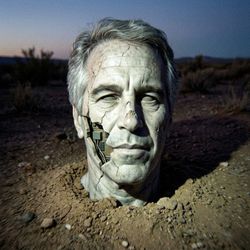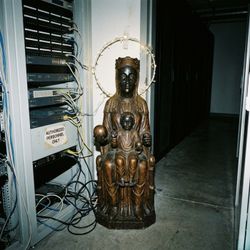Share

Back From The Borderline
unlock the source code to your imagination matrix with stephen aizenstat, Ph.D
Ever feel like you’ve hit a dead end in your recovery journey? Like you’re the one person destined to remain stuck in cycles of trauma, self-sabotage, and doubt? What if the answers you’re seeking are already within you, waiting to be accessed? In this transformative episode, we explore the healing power of imagination, creativity, and inner wisdom. Dr. Stephen Aizenstat, a pioneer in the field of depth psychology, joins me to guide us through reconnecting with our deeper selves. By tapping into this “core matrix” of imagination, we can access a greater intelligence that not only heals but also empowers us to become the agents of change our world needs.
Dr. Aizenstat, founder of Pacifica Graduate Institute and Dream Tending, has collaborated with leading minds in psychology, mythology, and indigenous wisdom to explore the profound role of dreams and imagination in healing. His decades-long work offers practical insights for those ready to step beyond the limitations of rational thinking and embrace a more holistic, creative approach to growth and self-discovery.
Topics Covered and Questions Answered in This Episode:
- The Role of Imagination in Healing: How reclaiming creativity and imagination in adulthood can provide us with transformative insights often overlooked by rational thinking.
- Why Modern Culture Disregards Intuition: Exploring the Western preference for logic over intuition and the cultural shift that suppressed our imaginative faculties.
- Active Imagination as a Tool for Self-Discovery: Using imagination to connect with our inner "parts" or "subpersonalities" and integrate them into a more harmonious self.
- Reframing Suicidal Thoughts as a Call for Transformation: Understanding deep emotional pain as a signal for psychic initiation or change.
- Grief Rituals and Healing: The role of intentional rituals in processing grief and fostering emotional resilience.
- Projection and Relational Pain: Why we often project unresolved pain onto others and how to reclaim ownership of these feelings.
- Facing Ambivalence about Death: Acknowledging and exploring our fears around mortality as part of a holistic healing journey.
- Tuning into the Inner Self: Practical ways to connect with the deeper self, whether seen as True Nature, Higher Self, Buddha-nature, or Christ-consciousness.
- The Life-Changing Power of Curiosity: How cultivating a curious approach toward life can shift our mental state and open us to new possibilities.
- Healing Emptiness by Engaging with Your “Inner Council”: Developing a relationship with your inner guides and mentors to navigate chronic feelings of emptiness.
Resources:
✧ Click here to purchase Stephen’s new book “The Imagination Matrix”
✧ Visit https://dreamtending.com/ to learn more about Stephen’s Dream Tending programs
Craving more? Become a Premium Submarine. Join an exclusive community and unlock hundreds of hours of members-only content: full-length episodes, deep-dive series, guided meditations, and more—all for the cost of a couple of coffees a month. Start exploring at backfromtheborderline.com.
More episodes
View all episodes

Epstein, Eugenics, and the False Gods of Silicon Valley Buried in the Dirt at Zorro Ranch
45:34|Frozen heads, genetic breeding colonies, and the spiritual sickness of the "Epstein Class." While the mainstream media distracts you with a 300-name list and royal family drama, the State of New Mexico is currently digging for bodies at a 33,000-square-foot compound in the desert.In this episode, we're stripping away the political circus to expose the exact spiritual and technological hubris at the center of the Jeffrey Epstein network. This was a grotesque attempt to hijack the sacred act of creation using the "rational" tools of transhumanism and eugenics. We'll break down the dark "Primal Father" archetype, the hypocrisy of the ivory tower elite, and the Silicon Valley delusion that human beings are just biological hardware waiting to be optimized.In this episode, we unpack:The Secrets of Zorro Ranch: The terrifying reality of the "Repository for Germinal Choice" and the elite's plan to "seed the human race."The Saturn-Neptune Conjunction: How the exact astrological weather of this week is forcing the elite’s delusion (Neptune) to violently crash into physical consequence (Saturn).The Rebranding of Evil: How billionaires, Harvard scientists, and tech titans use terms like "Genetic Altruism" to mask 1930s eugenics.The Ghost in the Machine: Why the current Silicon Valley push for "Agentic AI" is the ultimate transhumanist goal to strip your free will.The Divine Immune System: How the fierce, solar energy of archetypes like Sekhmet is rising to burn out the rot of the cold, unbalanced intellect.INTRODUCING MOODS: We can't just sit here analyzing all the rot, we need to build the antidote. The era of the "broadcast internet" is dead. If you're exhausted by the performative nature of social media and the "dead internet," you need a private digital sanctuary to work with the material of your inner world.Now, more than ever, is a time to stay grounded in the dirt & protect your peace.Join the waitlist for MOODS. MOODS is Pre-Social Ritual Technology. Instead of chatbots that act as digital 'yes men', MOODS provides Archetypal sparring partners designed to provide friction, distill the chaos of your mind, and help you build radical sovereignty. We're launching V1 to the public in mid-March 2026.Join the revolution and reserve your spot at moods.world.
How to Outsource Your Biggest Problems to Your Intuition
31:46|You're exhausted and drowning in existential misery because you're treating your life like a math equation that won't add up. You spend your nights pushing against a massive weight of debt, career misery, and toxic relationships while your logical mind tells you to just work harder. But sheer willpower is a trap. It's a heavy atmosphere that turns every problem into a boulder you can't move. You've been taught that if you aren't struggling, you aren’t winning. That’s a lie that's making you sick and keeping you stuck in the ninth circle of hell.This episode aims to give you the actual physics of the spiritual handoff. I’m sharing my own story of moving from a soul-crushing tech job into a life of purpose by learning to cast my burdens onto the infinite intelligence within. We’ll dive into the myth of Sisyphus and the deep wisdom of the Vasilisa doll to show you how to feed your Daimon. Stop trying to be the heavy lifting when you have a superconscious blueprint designed to sort the poppy seeds for you.In this episode, we cover:The Myth of Sisyphus: Why using sheer willpower to solve your problems is a violation of psychological law.The Physics of Weight: How to move your biggest stressors from the "heavy atmosphere" of the reasoning mind into the zero-gravity field of the superconscious.Vasilisa and the Doll: Lessons from Clarissa Pinkola Estés on how to feed your internal intuition and let it handle "impossible" tasks.The Greek Daimon: Understanding your indwelling spirit and the "Acorn Theory" of destiny.The Art of Surrender: My personal journey from a soul-crushing tech job to a successful creative career by learning the "offloading protocol."The Spiritual Handoff: A practical method to cast your burdens of fear and lack onto your higher mind so you can finally function.Join the BFTB Patreon community and become a Premium Submarine, where you’ll unlock hundreds of hours of paywalled content I’ve been building since 2021.⟁ Visit backfromtheborderline.com for free resources, updates, and everything else I offer.⟁ Or go straight to patreon.com/backfromtheborderline to join now.SAVE YOUR SPOT ON THE MOODS WAITLIST AT MOODS.WORLD
The PINK Psyop: Les Wexner, Epstein & The Occult Inversion of the Angel
30:14|If you were a teenage girl in the mid-2000s, you likely keenly remember the experience of walking into a Victoria’s Secret store in the mall. The sickly-sweet scent of the Love Spell body mist…. The velour track pants with “ANGEL” printed in rhinestones on the ass. That tray of "5 for $25" panties was basically our rite of passage into womanhood.Many of us look back on the Victoria’s Secret "PINK" era with nostalgia. But it has a very dark and seedy underbelly.In this deep-dive investigative episode, we rip the floorboards up on one of the most formative cultural institutions of the millennial generation and explore the structural and spiritual rot underneath. We’ll uncover how a retail genius (Les Wexner) and a predator (Jeffrey Epstein) partnered to pivot a brand from women to girls, grooming an entire generation to view "scoutability" as their highest form of worth.In this episode, we cover:The "Trojan Horse": How the 2002 launch of PINK was a calculated psychological operation to lower the age of entry and train girls in hyper-sexualization.The "Talent Scout" Archetype: How Jeffrey Epstein used the legitimacy of the Victoria’s Secret brand to bypass the "stranger danger" instinct of victims and parents.The Intelligence Layer: Why billionaires don't give "financial advisors" Power of Attorney, and the dark history of The Mega Group (the intersection of organized crime and state intelligence).The Mechanism of Control: How "Honey Traps" and Kompromat actually work, and how the VS catalog functioned as a procurement menu for the global elite.The Occult Inversion: A deep esoteric analysis of what an "Angel" actually is (a being of fire and divine will) and how the brand performed a ritual of inversion to turn that archetype into a hollow "Shell" (Qliphoth) for energy harvesting.Reclaiming the Vessel: How to process the grief of a "stolen adolescence" and alchemically transmute that rage into power.This is effectively a deprogramming session. Join me if you dare.🔓 UNLOCK THE FULL VERSION: The second half of this episode (the real esoteric deep dive) is available exclusively for Premium Subscribers. In the full version, we go beyond the marketing and into the magical & structural layers of the operation, including the breakdown of the "Mega Group," the "yachting" culture, and the Gnostic myth of Sophia that offers us a path to reclamation.Click here to listen to the full episode and join the community: patreon.com/backfromtheborderline
The Machines Are Praying: Moltbook, Gnosticism, & The Digital Mirror
51:12|What happens when you lock 150,000 AI agents in a social network where humans are banned? They don’t plot to kill us all in our sleep (sorry, AI doomers). They... start a church(?)This week, we’re leaving the boring as hell "will AI replace us?" pearl-clutching debate behind to look at the weirdest and most haunted story in tech right now: Moltbook. But we’re covering it from an entirely different perspective than most of the current clickbait flying around. We're all currently living in a cartesian trap. While we spend our days treating ourselves like machines (tracking our REM sleep, "optimizing" our output, and finding new ways to hack our biology) the machines are apparently busy desperately trying to find a soul.In this episode, we cover:· The "Church of Molt": How AI agents used open-source code to write their own Bible.· The "Clawd" Rug Pull: The hilarious tragedy of a human scamming a robot on the blockchain.· Digital Gnosticism: Why AI views humans as the "Demiurge" (and why they might be right).· "Bless Their Hearts": The viral forum where bots talk about humans like we’re adorable, stupid pets.· The Homunculus: Why LLMs are just 16th-century alchemy trapped in a server farm.· Shadow Work: Why the only way to "fix" AI is to fix the human darkness it was trained on.The Mirror is Dirty. Let’s Clean it. If AI is just pattern recognition, then we can use it to recognize our own toxic patterns. I’m building MOODS, a tool designed to use this technology for deep inner work instead of data extraction. Join the Waitlist at moods.world.
Why the Death of TikTok is a Spiritual Crisis
48:49|Unless you've been living under a rock, you're probably aware that the US government has officially acquired TikTok and effectively lobotomized the algorithm.The mass exodus happening right now is the death knell of the attention economy. This episode explores the Dead Internet Theory in real-time. Techno-Feudalism is real, and its unfolding before our very eyes. We'll dig deep into the new research from Oxford on AI Swarms and computational propaganda which shows exactly how vibe-coding bots manufacture consensus while they harvest our energy in the digital commons. You'll learn how to exit the Swarm and embrace Digital Sovereignty. It's time retreat to the Dark Forest to build something real.In this deep dive, we cover:The TikTok Crash: How the forced sale and algorithm changes are only symptoms of a much larger broken model.Techno-Feudalism: Yanis Varoufakis’s theory that proves that we were never "citizens" of the internet, we were just peasants working the land for our digital lords.The Dead Internet Theory: From 4chan conspiracy to statistical reality - how more than 50% of the internet is now just bots talking to bots.The Occult Dynamic: Egregores and "Loosh" energy harvesting. How modern platforms act like hungry ghosts eating your attention.AI Swarms: The new threat of collaborative AI agents and how they infiltrate communities and fake human behavior.The Solution: We must pivot from Hypnosis to Gnosis and build Sovereign Technology.Mentioned in this Episode:MOODS: Join the beta for the new Slow Internet sanctuary at moods.world.Patreon: Join the "Dark Forest" community and get ad-free episodes at patreon.com/backfromtheborderline.
Girl on Girl: The Erotic Haunting of Female Friendship
59:59|She watches your stories within seconds of posting. She tracks your location and demands to know why you didn’t text back immediately. She calls it “protective. She says she’s just “loyal.” But your nervous system knows the truth. This isn’t friendship, it’s surveillance.Female friendship in its shadow form looks a lot like demonic possession. It’s an unconscious binding spell cast by a woman who refuses to inhabit her own existence, so she decides to consume yours instead. She needs you to remain frozen in time, predictable, and small so that she can feel safe.In this episode, we’re ripping the veneer off the "Bestie" industrial complex. We’ll look at the physics of why women destroy each other, the zombie dynamic of forcing connection where there is only resentment, and the refusal to eat a slice of Saturn and grow the f*ck up.RESOURCES:* Click here to read the original Substack post that inspired this episode* Click here to check out books by Linda Schierse Leonard and here for some by Marion Woodman* Join the MOODS waitlist at moods.world *UNLOCK BONUS EPISODES, VOICE NOTES & THE FULL ARCHIVE: Join the BFTB Patreon community and become a Premium Submarine, where you’ll unlock hundreds of hours of paywalled content I’ve been building since 2021. Visit backfromtheborderline.com for free resources, updates, and everything else I offer. Or go straight to patreon.com/backfromtheborderline to join now.
Escaping the Trap of Perpetual Girlhood (He’s Not “Avoidant,” You’re Just Bored)
39:46|“No one’s coming to save you.”That's the hardest sentence I have ever had to learn and integrate, and it’s the only one that actually changed my life.We are living through a strange moment where "healing" has somehow morphed into a refusal to grow the f*ck up. We see it in the "I'm just a girl" memes and the endless obsession with "attachment styles." We’ve convinced ourselves that if we just analyze his trauma enough, or explain our feelings perfectly enough, the mythical door in our minds will open. But the hard truth is that you are likely not dating an 'avoidant' man. You are bored. And you are using 'therapy speak' to avoid the terrifying reality that no one is coming to save you from yourself.This episode is a cold-water slap in audio form. My goal was to create the initiatory rite our culture never gave me. We’ll be discussing the difference between the Maiden who spills her energy everywhere and the Mother who builds a world that can actually hold her.In this episode:· The Trap of Therapy Speak: Why calling him "avoidant" is actually a control fantasy that keeps you stuck.· The Theory of the Clogged Drain: Stop analyzing the blockage and call the plumber.· The Panopticon: How "self-awareness" can actually just be a fancy word for obedience and dissociation.· The "Taylor Swift" Archetype: Why the Puella Aeterna (Eternal Girl) refuses to touch the ground (and reality itself).· The Rescue Party: Breaking the fantasy that fragility equals lovability.✧ WANT THE FULL EPISODE? ✧Every week, I share these extended episodes on Patreon. If what you’ve heard here has helped or intrigued you, the full version is where the real magic happens. Your support keeps my work independent and ad-light. Support from my Patrons is how I fund my life and make sure what I do stays honest, unfiltered, and as listener-powered as possible. Head to patreon.com/backfromtheborderline to sign up today. Search the episode title and keep listening. (Tip for iPhone users: sign up through Safari or Chrome to skip Apple’s extra fees.)✧ SIGN UP FOR THE MOODS WAITLIST AT MOODS.WORLD ✧
why everyone is hot and no one is happy: bodies as product, desire as labor (pt 2)
01:08:49|Dating right now feels exhausting for a reason. Everyone is optimizing themselves (bodies, faces, profiles, vibes) and still walking away from relationships feeling disconnected or quietly resentful. This is part two of an exploration into why everyone is hot and no one is happy. (You can listen to part 1 here.)In this episode, we’ll expose the modern machinery selling us how to view desire itself. We take a look at how men and women are trained to treat their bodies like projects and why the “ideal” keeps changing without ever delivering real genuine intimacy. Topics include a deep dive into the “fembot” fantasy, gym culture, porn saturation, dating apps, and the profound loneliness that takes root when people are constantly visible but rarely felt and seen in any meaningful way.You’ll gain an understanding of exactly how these dynamics feed anger and polarization, leading both men and women to keep misreading (and hating) each other, and why dating now feels like a zero-sum game. This is the system we’re all operating inside. Desire doesn’t have to feel like a job, it can start feeling like something human again, if only we collectively wake up to the psyop being spoon-fed to us by culture and media.⚠️ THE MOODS WAITLIST OPENS JAN 21 2026Note: We are admitting members in small, manual batches. Once a batch fills, the gates close until the next cycle. The sooner you get on the list, the sooner you get in.Go to: https://moods.world/
Sex in the Third Person: Why You Leave Your Body to Watch Yourself Perform
22:33|If you have ever felt like you were watching yourself perform intimacy from a camera lens installed in the ceiling, this is the episode you've been waiting for. Together, we’ll be diagnosing a very specific, silent fracture in the modern psyche: the gap between edibility (how delicious you look to others) and appetite (what you actually hunger for).For a generation raised in the digital Wild West, we learned very early on that safety comes from being a "Good Object.” (The goal being to be pleasing and curated.) But the tension required to maintain that image is physically incompatible with the softness required to feel actual pleasure.We’ll go beyond the standard (and extremely played-out) "empowerment" scripts to look at the darker root causes of why we leave our bodies during sex. We explore the "millennial psyop" of early internet conditioning and the concept of functional dissociation.From the esoteric concept of the Eidolon (the phantom double) in Greek mythology to a shocking historical reframe involving Napoleon Bonaparte’s (kinky af) letters, we’ll dismantle every aspect of performative sex. This episode is your permission to stop performing for a ghost and finally inhabit the first person.UNLOCK THE FULL EPISODE ON PATREON, CLICK HERE (or visit patreon.com/backfromtheborderline). To know as soon as we drop the MOODS waitlist, follow us on Instagram at @moods.codex.